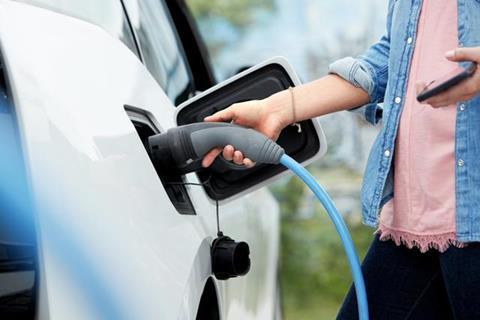In today’s fast-paced world, electric cars have become a significant part of our lives. As we continue to embrace this eco-friendly alternative to conventional vehicles, questions arise about the dos and don’ts of electric car maintenance and safety. One of the most common questions is, “Can you unplug an electric car while charging?” In this article, we will delve into this topic, dispel myths, and provide you with valuable information to ensure the safe and efficient use of your electric vehicle.
Can You Unplug An Electric Car While Charging: Understanding the Basics
To answer the question, “Can you unplug an electric car while charging?” we need to understand how electric car charging systems work. Electric cars are typically charged using two primary methods: home charging and public charging stations. Home charging involves plugging your car into a wall-mounted charging unit or a standard electrical outlet. Public charging stations, on the other hand, are found in various locations and provide faster charging options.
Electric cars come equipped with safety features to prevent any dangerous situations during charging. These features ensure that the vehicle can only be driven when it’s not actively charging and that the plug can’t be easily removed during charging. The answer to the question is, “Yes, you can technically unplug an electric car while it’s charging.” However, there are some essential considerations to keep in mind.
Safety First: Can You Unplug an Electric Car While Charging?
- Always Ensure the Charging Process Is Complete: Before you unplug your electric car, it’s crucial to make sure that the charging process is complete. This can be verified on your car’s dashboard or through a mobile app, which will indicate the battery’s charge level.
- Check for Safety Mechanisms: Electric cars are equipped with safety features to prevent any accidental unplugging while charging. These features include a locking mechanism that secures the plug in place during charging. If the charging process is still ongoing, the plug will not release easily.
- Consult Your Vehicle Manual: Every electric car model may have specific instructions regarding the charging process. It’s advisable to consult your vehicle’s manual for detailed information on charging and unplugging procedures.
Common Myths About Unplugging an Electric Car While Charging
Despite the safety measures in place, there are several myths and misconceptions about unplugging electric cars while charging. Let’s address some of these myths:
- Myth: Unplugging an Electric Car While Charging Is Dangerous: In reality, it’s not dangerous to unplug your electric car while charging when done correctly. Modern electric vehicles are designed with safety in mind and have safeguards in place to prevent accidents.
- Myth: Unplugging Mid-Charge Will Damage the Battery: Electric car batteries are designed to withstand occasional interruptions in charging. However, frequent interruptions or constantly unplugging and replugging the charger may have a negative impact on the battery’s overall lifespan.
- Myth: Unplugging Will Cause an Electric Shock: Unplugging an electric car while charging should not result in an electric shock, as long as you follow the proper safety procedures. It’s essential to ensure your hands are dry, and you firmly grasp the plug, not the cord, to avoid any potential risks.
Proper Procedure for Unplugging an Electric Car While Charging
Now that we’ve clarified some common myths, let’s discuss the correct procedure for safely unplugging your electric car while charging:
- Check the Charging Status: Before unplugging, make sure the charging process is complete. You can usually check this on your car’s dashboard or through a mobile app.
- Switch Off the Charging Unit: If your electric car is connected to a home charging unit, it’s a good practice to switch off the unit before unplugging to ensure safety.
- Hold the Plug Securely: When you’re ready to unplug your car, grasp the plug firmly and pull it out in a straight motion. Avoid pulling the cord or yanking the plug forcefully.
- Store the Plug Safely: After unplugging, store the charging plug in a clean and dry place, and ensure that it’s not exposed to extreme temperatures or moisture.
- Consult Your Vehicle Manual: Always refer to your vehicle’s manual for any specific instructions or precautions related to charging and unplugging.
In conclusion, the answer to the question “Can you unplug an electric car while charging?” is yes, you can, but it’s essential to do so following the proper safety procedures. Electric car manufacturers have implemented safeguards to ensure that unplugging is safe and straightforward. By understanding these procedures and debunking common myths, you can confidently and safely manage your electric car’s charging process. Always prioritize safety and refer to your vehicle’s manual for specific guidelines. Enjoy the benefits of driving an electric car with peace of mind.

